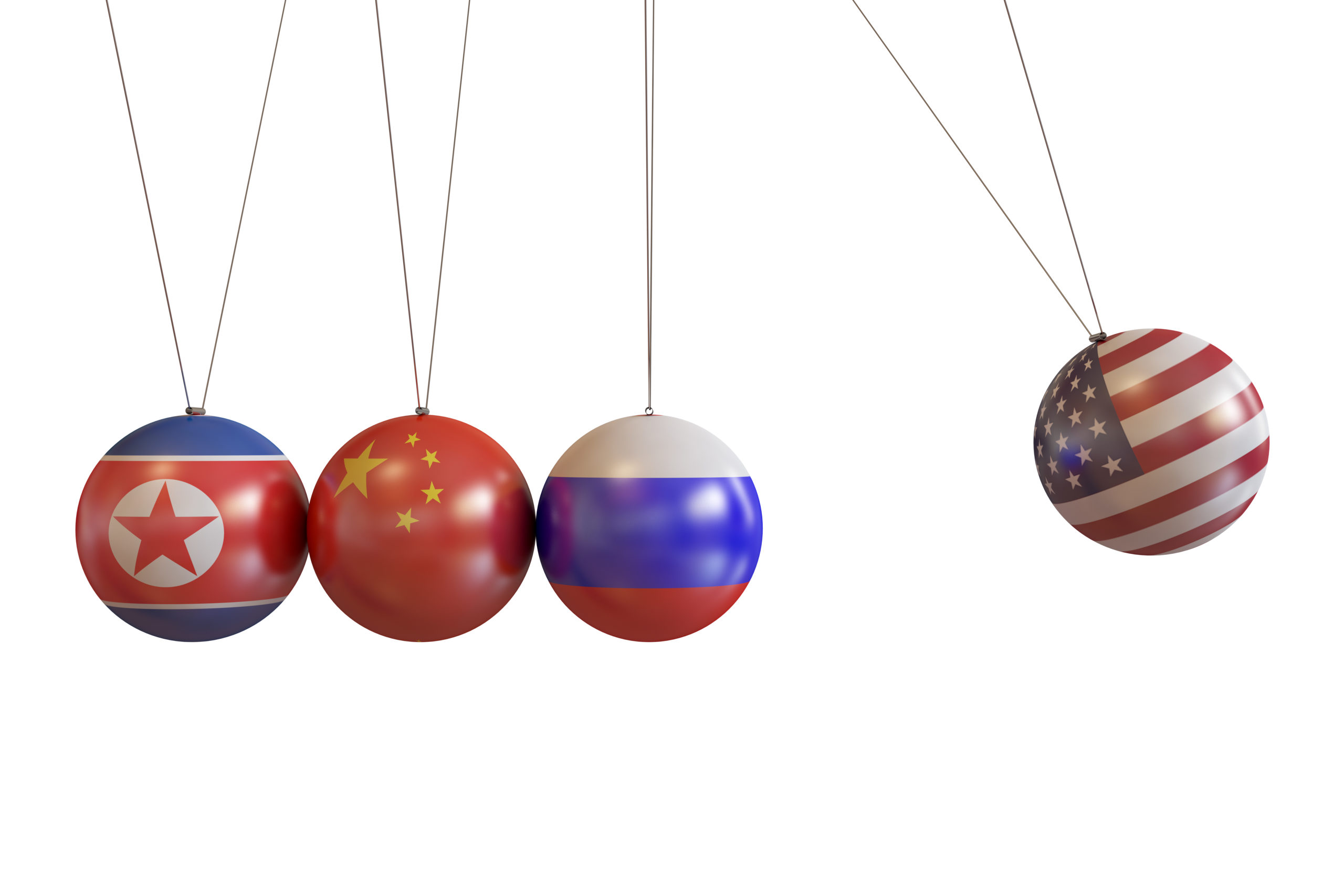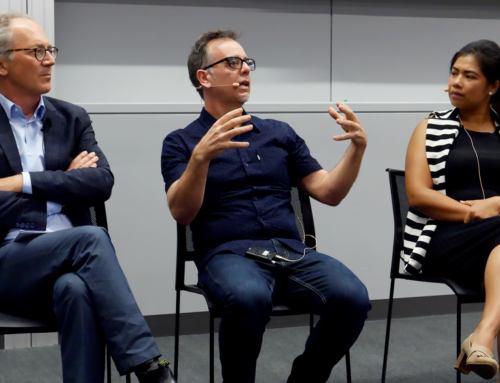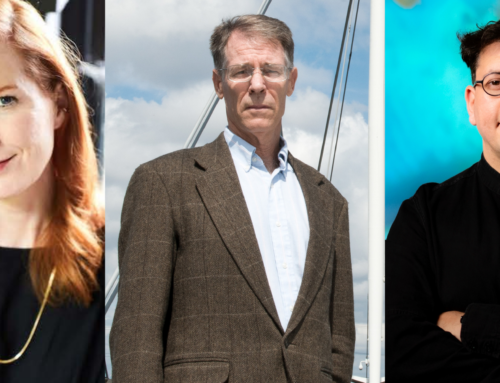Susannah Lai
The start of 2019 heralded many things: the deadline for Brexit (now delayed), the warm up to the 2020 US Presidential Campaign and the 2019 Australian Federal Election. The new year also signalled the advent of the fifth annual Q Symposium, which kicked off with a public forum hosted at the University of Sydney. This year’s Q Forum, titled “The Geopolitics of the Quantum Race”, focused on the policy and technological implications of quantum innovation and featured a range of international experts in areas from international relations and policy to cybersecurity and physics.
At the inception of Project Q, quantum was seen as something decades off, a sort of blue-sky technology that did not yet require a close examination of the ways in which it would impact the world. That has changed, and ‘quantum’ is now a trend. Just adding the word ‘quantum’ to a product or subject lends a futuristic, sophisticated feel. This has only added to the hype that surrounds quantum technology, particularly in the areas of quantum computing and communication. This effect is most visible in the way quantum technological advances are reported. For example, as a somewhat breathless article recently proclaimed: ‘scientists turned back time in a quantum computer’. Headlines like this are often misleading, as the truth is somewhat more mundane. Rather than breaking Einstein’s laws of relativity, as the headline might suggest, scientists had caused the state of some qubits to reverse to an earlier state. This is something more akin to playing a clip in rewind than ‘turning back time!’. While still impressive, today’s quantum advancements are not exactly breaking the known laws of physics.
Nevertheless, breakthroughs in quantum technology loom ever closer, and society should contemplate what that means. What will the ‘third quantum revolution’ bring? Will there be policies in place to deal with the potential upheaval, or will it be a cowboy frontier? As James Der Derian noted in his opening remarks, this is something that scholars of the social sciences need to consider. In particular, universities—as both the place where many of these advances are occurring, and as traditional leaders in innovative thought—have a responsibility to lead and contribute.
Fittingly, the first to speak on the panel was Professor Stephen Bartlett, a theoretical physicist working on quantum at the University of Sydney’s Nano Institute. Professor Bartlett spoke about the length of time that physicists have been studying quantum (he completed his PhD in quantum physics some 20 years ago) but noted that public interest and capital investment has only taken off recently. On the topic of investment, perhaps anticipating concerns from various interested parties, he explained how his research was being funded. Professor Bartlett was candid in mentioning that he receives a mixture of funding from defence organizations and corporate entities, but commented that funding sources have been heavily politicized recently due to China’s increased involvement in Australian quantum research. To that end, Professor Bartlett questioned how the politics of scientific research should be handled, since there will almost always be a political angle.
In a departure from a direct involvement in quantum, Professor Ron Diebert of CitizenLab spoke next. CitizenLab is an organization operating from the University of Toronto, focused on investigating cybersecurity issues and where they intersect with political interests, particularly in the areas of surveillance and espionage. Moving away from the direct technological impacts of quantum computing, he expounded on the problems that are presented today by conventional computing and cybersecurity.
Currently there are major issues surrounding the cavalier use of hidden surveillance, espionage and censorship by a heady mix of state and private interests—sometimes with lethal consequences for their subjects. With these technologies already at a terrifyingly advanced state and with little care for or understanding of their long-term social consequences, the potential for them to be further enhanced by the advent of quantum technology is chilling. Professor Diebert pointed out the lack of thought and foresight into technology around conventional computing, not least the blithe acceptance of social media, with its promotion of authoritarian politics, radicalizing of political attitudes and erosion of reasoned debate. He highlighted the urgent need for adversarial research into these technological advances to achieve a better idea of their impact.
Continuing in this vein, Professor Jairus Grove of the University of Hawaii, who studies global warfare, mused on the social impact of computer technology in general. He pointed out that there is a great deal of worry over quantum technology when it is in reality still a very nascent technology, only just at the ‘proof-of-concept’ stage. According to Professor Grove, the major promise of quantum technology is that it will relieve the burden of human decision-making in military situations, particularly if quantum computing boosts the power of artificial intelligence (AI). However, as Professor Grove argued, even advanced AI would still require human guidance, inevitably imbuing decisions with the moral, ethical or political biases of the decision maker.
Alternatively, AI could be applied to data processing of information provided by surveillance. If AI could reliably analyze patterns in ‘Big Data’ and provide reports to decision makers, it could be an invaluable strategic tool. Would quantum technology provide the means to achieve these goals? If so, how would that change the power balance in the world, and how would this impact on the situations of the ‘haves’ and the ‘have-nots’? These are the questions that we should consider as we look at the development of a new technology that promises to change the world.
Continuing the discussion on warfare, Nisha Shah, an IR specialist from the University of Ottowa, professed an interest in ‘interfaces that are designed to destroy’, particularly with regard to human life. She quoted a passage from a New York Times article written by C. J. Chivers, detailing the variables involved in the severity of bullets impacting the human body. It was, Professor Shah opined, particularly detached and technical. She then went on to discuss the banning of various weapons (such as hollow-tip rounds and chemical weapons), questioning how the international community has set ‘ethical’ ways to kill and maim people by setting normative rules about which weapons are acceptable and which are not. In light of this, Professor Shah talked about the need to decide what a quantum war would represent, and what norms should be agreed upon surrounding that. Furthermore, she warned, even conceptualizing the development of quantum technologies as a ‘quantum race’ was biasing the outcome toward war, as the implicit outcome of an arms race is war. This bias works on both the policies and norms created around the technology, as well as the technology itself, forging a path that is more likely to lead to weaponization. There is still time to change this conclusion, but only if the mindset changes soon, Professor Shah said.
The final speaker on the panel was Ole Waever, Professor of International Relations at the University of Copenhagen, and coiner of the term ‘securitization’. Professor Waever described international geo-politics as classifiable into two groups. ‘Earth’ politics, which concerns the function of the world as a whole, that is, subjects like climate change, artificial intelligence or the breakdown of cybersecurity, and ‘state to state’ politics, which concerns issues relating to the balance of power between states, and technologies that influence that balance. The trouble with this is that when the acquisition of a certain technology becomes an issue of ‘national security’, these concerns become encoded in the language of fear. Ultimately, that fear can drive the policies and decisions made.
Professor Waever then moved on to discuss the power structures that shape technology and how both forces affect the other. He warned the audience that while the development of both can often be taken for granted as organic and natural, it is important to understand how technology affects power structures and vice versa.
In the wake of fretful speculation and predictions (both dire and hopeful) and interspersed with ominous comparisons to previous technological arms races, the panel concluded with James Der Derian issuing a declaration that the aim of the day should be: “not shut up and calculate, but speak up and debate”; a rousing call to action to hopefully steer toward a better future.







Leave a Reply